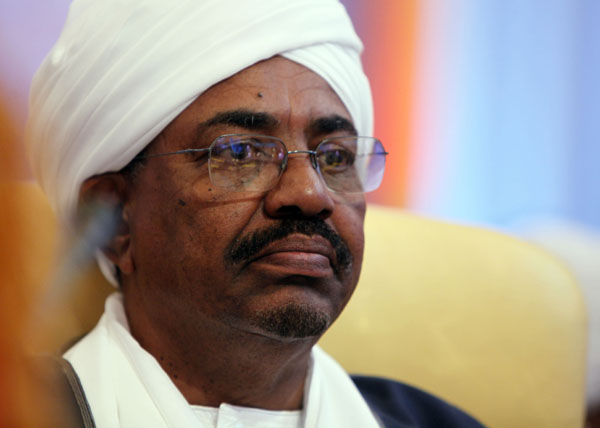
There’s broad consensus among Sudan watchers that the country is in crisis, emanating from the 23-year rule of President Omar al-Bashir. The question is: What to do? The Center for Strategic and International Studies, or CSIS, hosted a panel discussion in D.C. last week about the ongoing crisis in Sudan, moderated by Richard Downie, deputy director and fellow of the CSIS Africa Program, and featuring EJ Hogendoorn, Africa deputy program director at International Crisis Group, and Omer Ismail, Enough Project’s Sudan Advisor. The panelists’ diverging views sparked a lively discussion over the future of Sudan and the most effective paths to move the country forward.
Hogendoorn presented a concise analysis of the current political situation in Sudan, noting that the National Congress Party, or NCP, the ruling party of Sudan, is in its deepest crisis since it took power by coup in 1989, largely due to Sudan’s collapsing economy. The regime is becoming increasingly divided internally, with calls for reform coming from within the party as well as from Sudanese society at large. According to Hogendoorn, the status quo in Sudan is unsustainable, and President Omar al-Bashir, an indicted war criminal, is backed up against a wall.
Hogendoorn warned that unmanaged regime change—whether by an internal coup or toppling by outside forces—could lead to further chaos and violence. He advocated for a managed process of transition, stating that Bashir is the key to change in Sudan and currently has little incentive to give up power. If the international community offers him prevailing incentives, however, there is increased potential for reform. Such incentives could include relief for Sudan’s immense debt, granting Sudan “highly indebted poor country” status, and lifting the terrorism designation that has been placed on the country, as well as deferring the arrest warrant for Bashir issued by the International Criminal Court. These incentives, Hogendoorn stipulated, could bring the NCP to the negotiating table.
The Enough Project’s Omer Ismail agreed with Hogendoorn’s analysis of the state of the NCP and the desirability of a negotiated settlement, but he disagreed with his suggested roadmap for regime change. According to Ismail, the incentives offered to Bashir in the past have not worked, and it is highly unlikely they will work now. Officials in Khartoum have a “barricade mentality”—desperation as they cling to power, as demonstrated by Qaddafi’s regime and currently Assad’s—and they know how to manipulate the international community for their own benefit.
Ismail noted that the NCP is not, in reality, a political party, but rather it is the state. It cannot be treated as any other party the international community is accustomed to dealing with, because it does not operate within the same parameters. The NCP created an entirely new way of doing politics in Sudan, and the only way to enact meaningful change is to support the opposition, Ismail argued. “It is not easy for those who are out of resources, out of government, and out of favor to create meaningful change,” said Ismail. “And those are the ones the international community needs to recognize and support.” The opposition groups in Sudan are currently fragmented and thus far have been unsuccessful, but Ismail reminded the audience that many opposition movements begin in a similar way; the Sudan People’s Liberation Army, or SPLA that claimed independence for South Sudan was at one point broken into 32 factions. It will take patience, but in the end it is the only way forward for Sudan, Ismail said.
Despite differing opinions on the roadmap to peace in Sudan, the panelists agreed on a fundamental fact: time is up for Omar al-Bashir. He has marginalized and brutalized populations across Sudan for almost 25 years under a mentality of “have it all or destroy it all” that has led to suffering for millions of Sudanese. In his closing statements, Ismail identified one simple fact: 30 million Sudanese deserve better.
Photo: Omar al-Bashir (AP)
Related Stories

